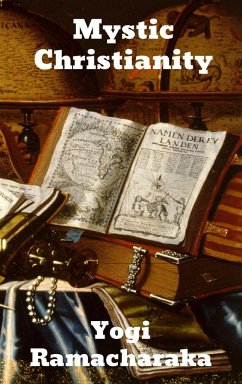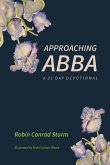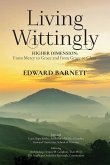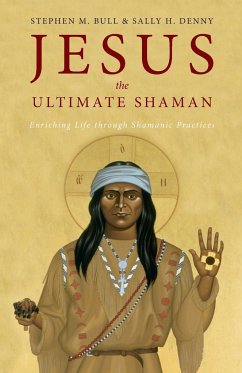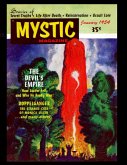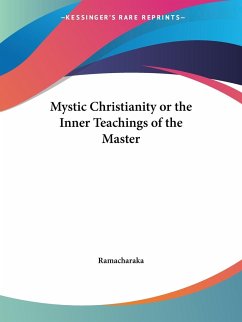Mystic Christianity is a religious studies classic by Yogi Ramacharaka. In both the occult traditions and the New Testament narrative, it is stated that a mystical occurrence ensued at the baptism, "the Spirit of God descending like a dove and lighting upon Him," and a voice from Heaven saying: "This is my beloved Son in whom I am well pleased." Esoteric Christianity (also known as Hermetic Christianity or Mystic Christianity) is an ensemble of spiritual currents which regard Christianity as a mystery religion, and profess the existence and possession of certain esoteric doctrines or practices of which the public is unaware (or even to which they may be denied access) but which are understood by a small group of people. These spiritual currents share some common denominators, such as heterodox or heretical Christian theology; the canonical gospels, various apocalyptic literature, and some New Testament apocrypha as sacred texts;[citation needed] and disciplina arcani, a supposed oral tradition from the Twelve Apostles containing esoteric teachings of Jesus the Christ. The word "mysticism" is derived from the Greek, meaning 'an initiate'. In the Hellenistic world, 'mystical' referred to "secret" religious rituals. The use of the word lacked any direct references to the transcendental. A "mystikos" was an initiate of a mystery religion. Theologians give the name mystery to revealed truths that surpass the powers of natural reason,[9] so, in a narrow sense, the Mystery is a truth that transcends the created intellect. The impossibility of obtaining a rational comprehension of the Mystery leads to an inner or hidden way of comprehension of the Christian Mystery that is indicated by the term esoteric in Esoteric Christianity. Even though revealed and believed, the Mystery remains nevertheless obscure and veiled during the mortal life, if the deciphering of the mysteries, made possible by esotericism, does not intervene. This esoteric knowledge would allow a deep comprehension of the Christian mysteries that otherwise would remain obscure. Some modern scholars believe that in the early stages of Christianity, a nucleus of oral teachings were inherited from Palestinian and Hellenistic Judaism. In the 4th century, it was believed to form the basis of a secret oral tradition which came to be called disciplina arcani. The mainstream theologians, however, believe that it contained only liturgical details and certain other traditions which remain a part of some branches of mainstream Christianity.Important influences on Esoteric Christianity are the Christian theologians Clement of Alexandria and Origen, the leading figures of the Catechetical School of Alexandria. While hypothetically considering a complex multiple-world transmigration scheme in De Principiis, Origen denies reincarnation in unmistakable terms in his work Against Celsus and elsewhere. Despite this apparent contradiction, most modern Esoteric Christian movements refer to Origen's writings (along with other Church Fathers and biblical passages) to validate these ideas as part of the Esoteric Christian tradition
Hinweis: Dieser Artikel kann nur an eine deutsche Lieferadresse ausgeliefert werden.
Hinweis: Dieser Artikel kann nur an eine deutsche Lieferadresse ausgeliefert werden.

